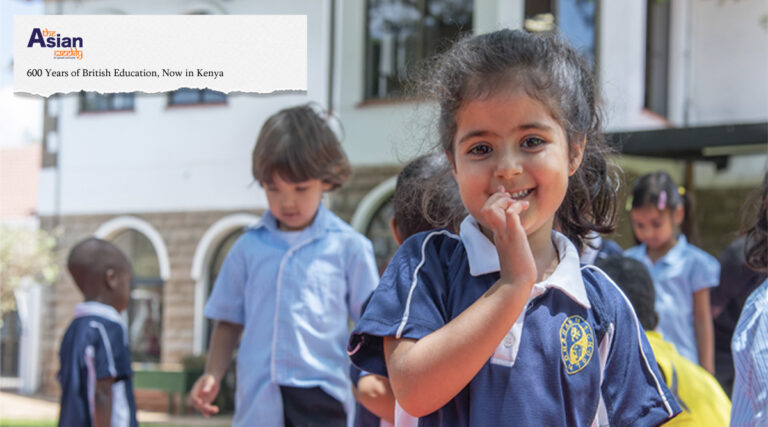Academic learning may be the explicit focus of schooling, but learning is also social and emotional. Social and emotional development refers to how children learn to understand who they are, what they are feeling and what to expect when interacting with others. It is the development of being able to form and sustain positive relationships, and to experience, manage and express emotions. When we feel emotionally safe, we feel calm, happy and supported, and our brains can more easily take in information and we learn new things.
Both parents and schools play an important role in helping create the positive conditions for learning. Schools are hubs of social activity, communication and human interaction. The closure of schools since March 2020, because of COVID-19, has meant that children have missed out on this daily social and emotional contact with their peers and teachers that is essential to learning and development. This social isolation from class peers and close friends has led to a feeling of being adrift from others. For some children, the lack of connection and belonging has led to anxiety and depression.
Routines are important when it comes to the learning success of students. Daily structure establishes safety and control, which is key for the psychological and emotional development of children. During the months of distance learning children have lacked the structure, predictability and consistency that the normal school day routine brings. The security of knowing what is happening and when has been missed by some children while schools have been closed. The lack of in-person interaction has also affected learning for some children who have found participating in online learning activities difficult. Focussed attention, self-discipline and the ability to stay on task are executive function skills that students need in order to be successful learners.
Strategies for Parents to Support their Child’s Social and Emotional Development
Parents are key to providing stability and support from home to help their children feel capable, valued and connected as they continue online learning and as they prepare to return to school.
- Help your child build their identity and agency: Identity refers to how we define ourselves and how we understand who we are. Observe how your children deal with things, their belief in themselves, their confidence and grit to push through when things get hard. Build your child’s sense of agency (i.e. their belief that they have capacity to act on the world, that they will be listened to and that they can affect change) by engaging your children every day in conversation and discussion and giving their ideas unconditional regard, listening without distraction and taking their ideas seriously. This can change the dynamic of your relationship with your child and is especially important during distance learning when children are feeling isolated from their peers and teachers.
- Stick to daily routines: Have in place a daily structure and routines around getting up, going to bed and meal times on weekdays. Normalising the ‘school day’ for children now will help them get back into the normal schedule when schools reopen.
- Give honest and accurate information to your children: Listening to what children believe about COVID-19 transmission is essential; providing children with an accurate explanation that is meaningful to them will ensure that they do not feel unnecessarily frightened or guilty. Adults need to be authentic about some of the uncertainty and psychological challenges of the pandemic, without overwhelming children with their own fears. This honesty not only offers a coherent explanation for what children are observing, but also grants permission for children to safely talk about their own feelings and normalises their emotional reactions.

- Spend time talking about emotions with your child: Talk, listen, and encourage expression, allowing the internal world of your children to be expressed and FELT. Equip your children with the words to express and name the different emotions they are feeling and to develop their capacity to understand their emotions.
- Teach your child simple steps to stay healthy: As schools re-open, reinforce and continually remind your children about the importance of wearing masks, washing hands, sanitising and social distancing. These steps are the new normal for the foreseeable future.
- Keep an eye out for signs of stress and anxiety by being alert for any change in your children’s behaviours.
- Look after yourself: You cannot fill the cup of another if yours is already empty. A work-life balance is even more important when you are working from home. Maintain regular working hours, schedule breaks, have a connected and meaningful conversation each day with someone outside of your home, and end your workday with a relaxing routine.
- Re-frame your conversations about ‘learning loss’ due to distance learning to ‘learning that has taken place’ during distance learning. Online learning has given children an opportunity to learn in a new way, to spark different interests, and to explore things from different angles. Children have been able to tap into their own learning style by being able to study when and how it suits them individually. Parents have been able to get involved in their children’s learning and to augment some of the activities their children were working on. Affirm your children’s learning over the last two terms by positively articulating what your children ‘did do’ during this time and their achievements.

Return to school and Reintegration
The return to school will be welcome. It will be exciting for many children while others may be feeling anxious or reluctant. Make your child feel at ease by having an open conversation about going back. Go through some of the changes they can expect at school, like wearing masks, and explain the 1 metre social distance rule and how that will look in their classrooms. Reassure children that the safety measures are in place to help keep everyone healthy.
To learn more about Durham Kenya and meet our team, make an appointment to visit the school!
Article By:
[row] [col span=”4″ span__sm=”12″ margin=”0px 0px -25px 0px”] [ux_banner height=”99.99%” bg=”7070″] [text_box position_x=”50″ position_y=”50″] [/text_box] [/ux_banner] [gap height=”14px”]Sue Small Headteacher, Durham International Nursery & Pre-Prep School, Nairobi
[/col] [col span=”4″ span__sm=”12″ margin=”0px 0px -25px 0px”] [ux_banner height=”99.99%” bg=”7069″] [text_box position_x=”50″ position_y=”50″] [/text_box] [/ux_banner] [gap height=”15px”]Alexandra Barratt Systemic Family Practitioner, Nairobi
[/col] [col span=”4″ span__sm=”12″ margin=”0px 0px -25px 0px”] [ux_banner height=”99.99%” bg=”7068″] [text_box position_x=”50″ position_y=”50″] [/text_box] [/ux_banner] [gap height=”15px”]Dr Rashnik Ghalay Consultant Paediatrician:Footprints Paediatrics, Nairobi
[/col] [/row] [/section] [gap]References
How to talk to your child about coronavirus disease 2019 (COVID-19)
https://www.unicef.org/coronavirus/how-talk-your-child-about-coronavirus-covid-19
Dalton L, Rapa E, Stein A. Protecting the psychological health of children through effective communication about COVID-19. Lancet 2020; 346-47
Dalton L. et al, (2020), Lancet Child Adolesc Health, 4, 346 – 347
McElroy E. et al, (2020), Demographic and health factors associated with pandemic anxiety in the context of COVID-19.Br J Health Psychol













